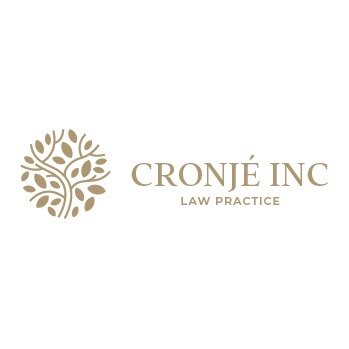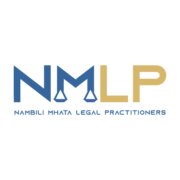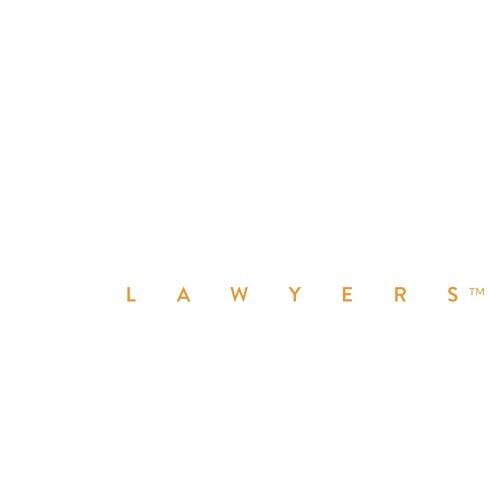Best International Trade Law Lawyers in Namibia
Share your needs with us, get contacted by law firms.
Free. Takes 2 min.
Or refine your search by selecting a city:
List of the best lawyers in Namibia
About International Trade Law in Namibia
International Trade Law in Namibia governs the rules and practices for trading goods and services across its borders. This includes compliance with tariffs, trade agreements, cross-border regulations, and dispute resolution. As a member of the Southern African Customs Union (SACU) and the World Trade Organization (WTO), Namibia's trade laws align with international standards to facilitate smooth and fair trade exchanges while protecting its economic interests.
Why You May Need a Lawyer
Individuals and businesses in Namibia may require legal assistance in International Trade Law for various reasons:
- Entering into international trade agreements or transactions requiring legal scrutiny.
- Compliance with import/export regulations and customs duties.
- Resolving trade disputes, including breach of contract, trade barriers, or unfair trade practices.
- Understanding the implications of changes in international trade policies or legal frameworks.
- Safeguarding intellectual property rights in the context of international trade.
Local Laws Overview
Several key aspects of Namibian law are relevant to International Trade:
- Customs and Excise Act: Governs the administration of customs duties and excise taxes on goods entering or leaving Namibia.
- Namibia Trade and Investment Policy: Encourages foreign investment and guides the nation’s trade priorities.
- Foreign Investment Act: Provides a framework for foreign direct investment and protects investor interests.
- Consumer Protection Act: Ensures that trade practices do not infringe consumer rights.
- Competition Act: Prevents anti-competitive practices that might affect trade and market access.
Frequently Asked Questions
What is International Trade Law?
International Trade Law encompasses the rules and customs governing trade between countries. It includes regulations on imports, exports, trade agreements, tariffs, and international dispute resolution.
Does Namibia have any trade agreements?
Yes, Namibia is a signatory to various trade agreements, including the Southern African Development Community (SADC) Free Trade Area, the African Continental Free Trade Area (AfCFTA), and is part of the World Trade Organization (WTO).
What are the common barriers to international trade?
Common barriers include tariffs, non-tariff barriers such as quotas and import licenses, and trade protection measures like anti-dumping duties.
How can I ensure compliance with Namibian trade laws?
Compliance can be ensured by familiarizing yourself with the relevant legislation, consulting with legal experts, and coordinating with Namibian trade ministries and compliance bodies.
What are the penalties for non-compliance with trade laws?
Penalties may include fines, confiscation of goods, loss of trading licenses, and potential legal action for severe violations.
What is a tariff, and how does it affect trade?
A tariff is a tax imposed on imported goods, which can make them more expensive, potentially reducing their demand domestically to protect local industries.
How are trade disputes resolved?
Disputes are typically resolved through negotiations, arbitration, or using dispute resolution mechanisms provided by international trade agreements or local laws.
What role do lawyers play in international trade transactions?
Lawyers assist in drafting and negotiating contracts, ensuring legal compliance, advising on risk management, and resolving disputes that arise from trade activities.
Can I protect my intellectual property internationally?
Yes, through regulations such as the TRIPS Agreement under the WTO, you can secure protections for intellectual property rights internationally, but it often requires registration or filing in different jurisdictions.
What should I do if I face unfair trade practices?
Contact a lawyer to explore options for resolving the issue, which might include filing a complaint to relevant authorities or initiating a legal claim.
Additional Resources
Here are some resources and organizations that can be beneficial:
- Namibia Trade Forum: Provides information and resources on trade matters.
- Ministry of Industrialization and Trade: Offers guidelines and support on trade regulations and policies.
- The Namibia Investment Centre: Advises on investment opportunities and trade incentives.
- World Trade Organization (WTO): Offers insights into global trade regulations and dispute mechanisms.
Next Steps
To navigate the complexities of International Trade Law, consider following these steps:
- Consult with a legal expert specializing in International Trade Law for tailored advice and guidance.
- Engage with trade law offices or specialists in Namibia to review your specific situation.
- Use available resources to stay informed about changes in trade regulations and laws.
- Develop a compliance strategy to mitigate risks associated with international trade practices.
Lawzana helps you find the best lawyers and law firms in Namibia through a curated and pre-screened list of qualified legal professionals. Our platform offers rankings and detailed profiles of attorneys and law firms, allowing you to compare based on practice areas, including International Trade Law, experience, and client feedback.
Each profile includes a description of the firm's areas of practice, client reviews, team members and partners, year of establishment, spoken languages, office locations, contact information, social media presence, and any published articles or resources. Most firms on our platform speak English and are experienced in both local and international legal matters.
Get a quote from top-rated law firms in Namibia — quickly, securely, and without unnecessary hassle.
Disclaimer:
The information provided on this page is for general informational purposes only and does not constitute legal advice. While we strive to ensure the accuracy and relevance of the content, legal information may change over time, and interpretations of the law can vary. You should always consult with a qualified legal professional for advice specific to your situation.
We disclaim all liability for actions taken or not taken based on the content of this page. If you believe any information is incorrect or outdated, please contact us, and we will review and update it where appropriate.
Browse international trade law law firms by city in Namibia
Refine your search by selecting a city.

















